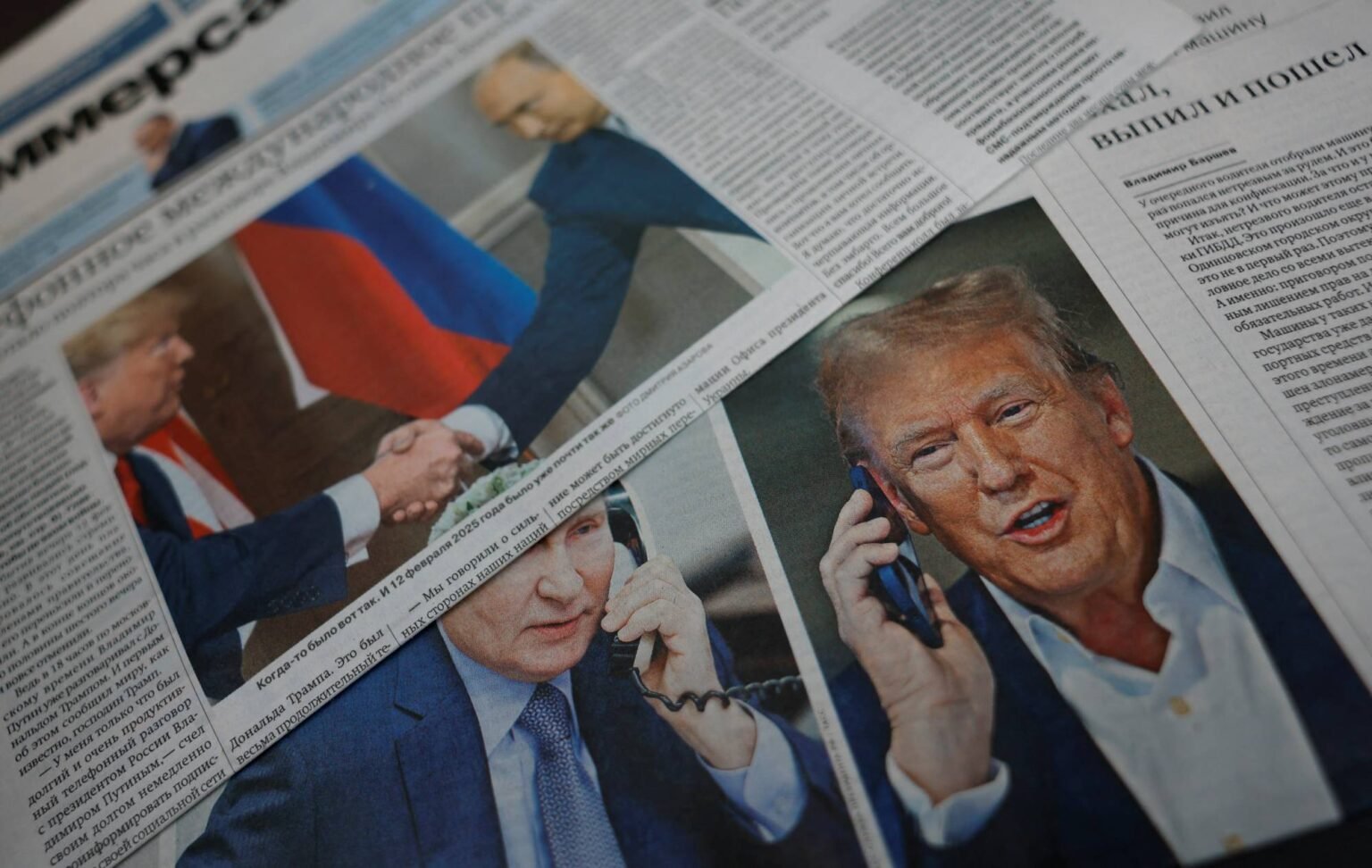Key Moments in Trump and Putin’s Relationship: Between Praise and Criticism
Former US President Donald Trump and Russian President Vladimir Putin had a 90-minute phone conversation on Wednesday, opening a new chapter in their eventful history. Their relationship during Trump’s first term was dramatic and unpredictable, with diplomatic victories for Putin and moments where Trump drew hard lines, according to “The Washington Post.”
Here are some key moments and topics in the Trump-Putin relationship during Trump’s first term:
Election Interference
Accusations of Moscow’s interference in Trump’s 2016 election loomed over their interactions. Both the CIA and FBI concluded that Russia had interfered, despite Trump repeatedly questioning these findings. The interference involved a bot-driven influence campaign to sway voters, disrupt the electoral process, and hack Democratic Party networks and officials, among other methods, as per U.S. government assessments.
Putin denied any interference, and Trump took his word for it. During a joint press conference in Helsinki in 2018, Trump said Putin offered a “very, very strong denial.” Trump called the investigation into Russian interference a “total witch hunt,” contradicting his own Justice Department, later adding, “President Putin says it’s not Russia. I don’t see any reason why it would be.”
Moscow was pleased with Trump’s words; Russian Foreign Minister Sergey Lavrov called the summit “better than fantastic.”
Praise and Criticism
Both leaders praised each other’s abilities in terms of intelligence and strength.
During Trump’s first campaign, Putin called him “an outstanding and talented man.” Trump, while Barack Obama was still in office, said about Putin, “I think in terms of leadership, he’s getting an A.”
During the 2016 campaign, Trump frequently compared Obama unfavorably to Putin, stating, “Putin has an 82 percent approval rating. He’s running his country, and at least he’s a leader, unlike what we have in this country.”
In September 2016, when asked by an NBC interviewer about his relationship with Putin, Trump responded, “If he says great things about me, I’m going to say great things about him.”
After Trump’s election win, Putin in a radio interview said, “To the extent he was able to achieve success in business, this demonstrates that he is a clever man.”
In February 2017, Fox News’ Bill O’Reilly pushed Trump to praise the Russian leader. O’Reilly said, “Putin’s a killer.” Trump replied, “There are a lot of killers. We’ve got a lot of killers. What, you think our country’s so innocent?”
Syria
During his first term, Trump announced the withdrawal of U.S. forces from Syria, surprising allies and giving Putin leverage, leaving Kurdish forces that had fought ISIS in a bind. This meant Moscow would become the unchallenged international mediator in Syria, which it had supported throughout the civil war.
Earlier that year, in a rare moment, Trump criticized Putin, blaming him for deaths in Syria under Assad’s regime.

Ukraine
In 2017, Trump’s administration approved the sale of “Javelin” missiles and launchers to Ukraine to aid in their conflict against separatists.
Two years later, Trump froze hundreds of millions in Congressionally approved security aid to Ukraine, which became central to subsequent impeachment trials. This freeze came after a call where Ukrainian President Volodymyr Zelensky showed interest in more Javelins, and Trump asked for a “favor”: investigating Democratic presidential candidate Joe Biden and his son Hunter’s business dealings in Ukraine. Trump denied any quid pro quo.
In 2022, after leaving office, Trump in a radio appearance described the Russian military as a “peace force” and later said he was praising Putin’s military buildup on Ukraine’s border as a negotiation tactic before Putin went “too far” and made “the unfortunate decision to enter Ukraine.”
During his 2024 campaign, Trump repeatedly claimed that as president, he would end the war between Russia and Ukraine immediately.
Skripal Attack
Trump’s response to the 2018 attempted assassination of a former Russian intelligence officer was scrutinized.
On March 4, 2018, former Russian intelligence officer and British citizen Sergei Skripal and his daughter were found near death in Salisbury, England.
The UK was quick and strong in condemning the attack as more details emerged. Then-Prime Minister Theresa May on March 12 said, “This attempted murder by a nerve agent in a British town was not just a crime against the Skripals. It was an indiscriminate and reckless act against the UK.”
Russia denied any involvement.
Initially, Trump seemed hesitant to provide a stern response but eventually, his administration imposed broad sanctions on Moscow. In an interview in October that year, Trump suggested Putin “might” be involved in assassinations and poisonings but added, “That’s not in our country.”
This article captures the nuanced and sometimes contradictory nature of the Trump-Putin relationship, illustrating how personal diplomacy can play out on the world stage.
US Defense Secretary: Our Plans to End Ukraine War “Not Betrayal”




